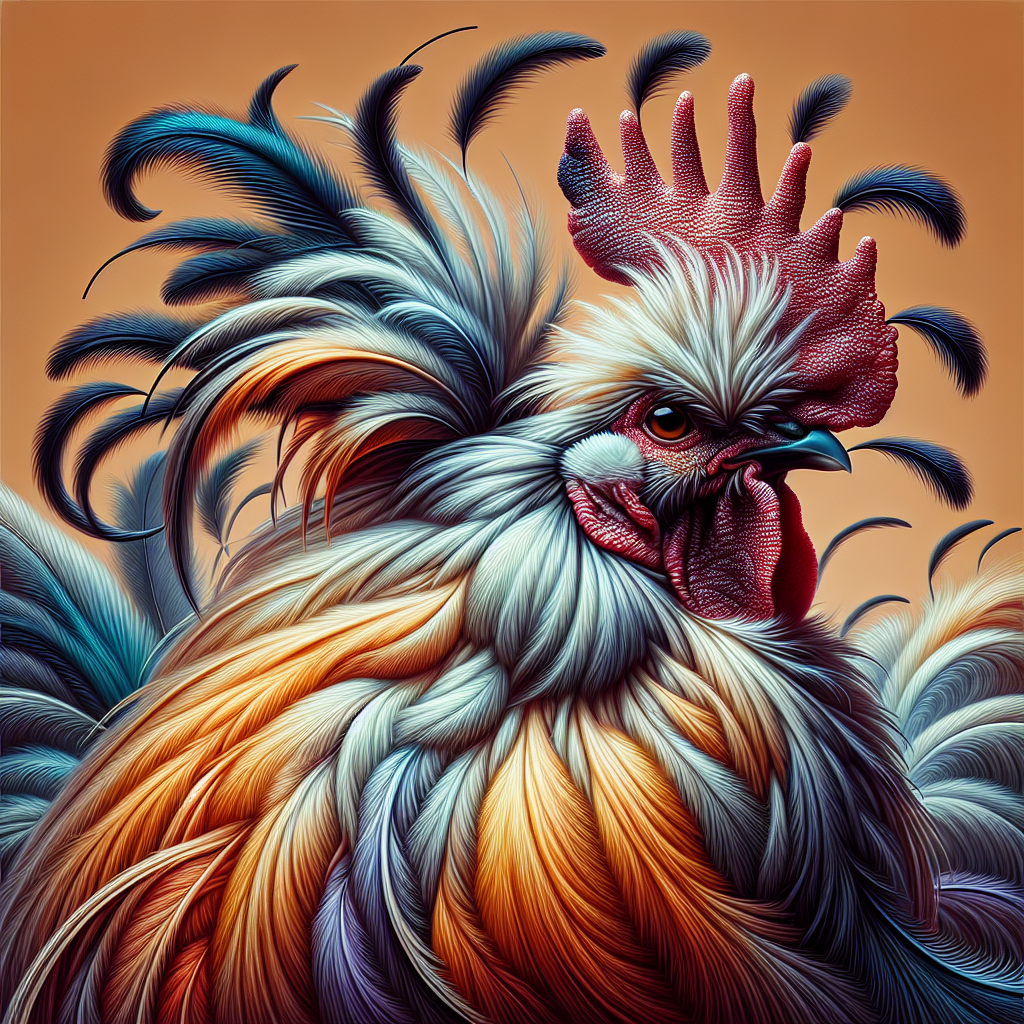Imagine having a faithful feathered companion by your side for many years to come. In the world of chicken keeping, certain breeds have earned a reputation for their remarkable lifespan. Whether you’re a seasoned poultry enthusiast or considering embarking on the exciting journey of backyard chicken raising, it is valuable to know which chicken breeds are recognized for their longevity. Discovering these resilient and long-lived breeds will not only provide you with years of enjoyment and companionship but also offer a rewarding chicken-keeping experience. When it comes to raising chickens, longevity is an important factor to consider. After all, you want your feathered friends to be with you for many years to come. In this article, we will explore some chicken breeds that are recognized for their longevity and delve into the factors that contribute to their long lifespans.
1. The Rhode Island Red
1.1. Introduction to the Rhode Island Red
The Rhode Island Red is a popular breed known for its versatility and hardiness. They are highly regarded for their ability to thrive in various climates and adapt to different environments. Rhode Island Reds are also prized for their excellent egg-laying capabilities, making them a preferred choice among backyard chicken keepers.
1.2. Lifespan of the Rhode Island Red
On average, a Rhode Island Red can live for 6 to 8 years. However, with proper care, some individuals have been known to live up to 10 years or more. This breed’s genetic predisposition to health and vigor contributes to their relatively long lifespan.
1.3. Factors for Longevity in Rhode Island Reds
Several factors contribute to the longevity of Rhode Island Reds. Firstly, providing a balanced and nutritious diet is crucial in promoting overall health and well-being. Regular access to fresh water, high-quality feed, and a mix of grains and greens will significantly contribute to their longevity.
Additionally, ensuring a clean and spacious living environment is essential to prevent the spread of diseases and reduce stress levels. Regular veterinary care, including vaccinations and routine check-ups, can also help detect and address any health issues early on.
2. The Sussex
2.1. Introduction to the Sussex
The Sussex breed is revered for its docile nature, making them an excellent choice for backyard flocks, especially for families with children. They come in various colors, including white, buff, and speckled, adding beauty to any chicken coop.
2.2. Lifespan of the Sussex
Sussex chickens have an average lifespan of 6 to 8 years. However, their longevity can be extended with proper care and management. Their calm and adaptable temperament makes them less prone to stress-related illnesses, contributing to their overall well-being and extended lifespan.
2.3. Factors for Longevity in Sussex Chickens
To ensure the longevity of Sussex chickens, providing a well-balanced diet rich in nutrients is vital. Supplementing their feed with calcium and grit can promote optimal egg production and overall health.
Furthermore, implementing good flock management practices, such as regular cleaning of the coop and providing adequate space, helps minimize the risk of diseases and injuries. Sussex chickens are generally hardy, but regular health check-ups and prompt veterinary attention when needed can help maintain their well-being over time.
3. The Plymouth Rock
3.1. Introduction to the Plymouth Rock
Plymouth Rocks, also known as Barred Rocks, are a beloved breed for both their friendly demeanor and their productivity. With their striking black and white striped feathers, they are a visually appealing addition to any backyard flock.
3.2. Lifespan of the Plymouth Rock
Plymouth Rock chickens have an average lifespan of 6 to 8 years. However, with proper care and attention, they can live beyond that range. Their robust genetic makeup and healthy disposition contribute to their longevity.
3.3. Factors for Longevity in Plymouth Rocks
To ensure the longevity of Plymouth Rock chickens, a balanced diet is vital. Providing a mix of commercial feed, grains, and kitchen scraps is recommended. Additionally, access to ample fresh water and a well-maintained living environment will contribute to their overall health and well-being.
Regular exercise and access to a spacious outdoor area for foraging can promote their natural behaviors and help maintain their physical and mental health. Lastly, regular health check-ups and preventive care, such as vaccinations and deworming, are essential for preventing illnesses and ensuring a long and healthy life.
4. The Australorp
4.1. Introduction to the Australorp
The Australorp breed originated in Australia and quickly gained popularity due to its exceptional egg-laying abilities. These chickens are known for their glossy black feathers and bright red combs, making them an attractive choice for both egg production and aesthetic appeal.
4.2. Lifespan of the Australorp
Australorps have an average lifespan of 6 to 8 years. However, with proper care and favorable living conditions, they can live well beyond that range. Their robust genetics and relatively low susceptibility to diseases contribute to their longevity.
4.3. Factors for Longevity in Australorps
Maintaining a healthy diet is crucial for Australorps to live a long and healthy life. Providing a balanced feed enriched with necessary vitamins and minerals supports their egg-laying capabilities and overall health.
Creating a stress-free environment is also important for promoting longevity. Minimizing noise, providing enough space for exercise, and ensuring proper ventilation in the coop help reduce stress levels and prevent respiratory problems.
Regular attention to their grooming, such as nail trimming and checking for any signs of illness or injury, contributes to their overall well-being. Additionally, proper biosecurity measures, such as quarantine protocols for new birds, help prevent the introduction and spread of diseases.
5. The Barred Rock
5.1. Introduction to the Barred Rock
Barred Rocks, also known as Plymouth Rocks, are a popular dual-purpose breed known for their exceptional egg production and meat quality. Recognizable by their black and white striped plumage, these chickens are not only productive but also make fantastic additions to backyard flocks.
5.2. Lifespan of the Barred Rock
Barred Rocks have an average lifespan of 6 to 8 years. With proper care, some individuals can live beyond that range. Their hardy genetics and overall vigor contribute to their relatively long lifespan.
5.3. Factors for Longevity in Barred Rocks
Providing a well-balanced diet is essential for maintaining the health and longevity of Barred Rocks. A mix of commercial feed, grains, and kitchen scraps ensures they receive the necessary nutrients for optimal egg production and overall well-being.
Maintaining a clean and predator-proof coop is crucial for their safety and overall health. Regular bedding changes, proper ventilation, and secure fencing contribute to a stress-free living environment. Regular health check-ups and prompt veterinary attention when needed are also paramount to maintaining their well-being.
6. The Orpington
6.1. Introduction to the Orpington
Orpingtons are renowned for their gentle nature and fluffy feathering, making them a favorite among chicken enthusiasts. They come in various colors, including black, blue, buff, and white, adding diversity to any flock.
6.2. Lifespan of the Orpington
Orpington chickens have an average lifespan of 6 to 8 years. However, with attentive care, some individuals can surpass that range and live a longer life. Their robust genetics, coupled with good management practices, contribute to their longevity.
6.3. Factors for Longevity in Orpingtons
Ensuring a balanced and nutritious diet is vital to the longevity of Orpingtons. Providing a mix of high-quality feed, fresh greens, and kitchen scraps will help maintain their overall health and well-being.
Creating a stress-free environment by minimizing noise and providing enough space in the coop is essential. Optimal ventilation and regular cleaning contribute to their respiratory health and reduce the risk of diseases.
Regularly checking for signs of illness or injury and seeking veterinary care when needed are essential for maintaining the health of Orpingtons. Additionally, protective measures against predators and implementing biosecurity protocols help prevent diseases and maintain their overall longevity.
7. The Sussex
7.1. Introduction to the Sussex
The Sussex breed is revered for its docile nature, making them an excellent choice for backyard flocks, especially for families with children. They come in various colors, including white, buff, and speckled, adding beauty to any chicken coop.
7.2. Lifespan of the Sussex
Sussex chickens have an average lifespan of 6 to 8 years. However, their longevity can be extended with proper care and management. Their calm and adaptable temperament makes them less prone to stress-related illnesses, contributing to their overall well-being and extended lifespan.
7.3. Factors for Longevity in Sussex Chickens
To ensure the longevity of Sussex chickens, providing a well-balanced diet rich in nutrients is vital. Supplementing their feed with calcium and grit can promote optimal egg production and overall health.
Furthermore, implementing good flock management practices, such as regular cleaning of the coop and providing adequate space, helps minimize the risk of diseases and injuries. Sussex chickens are generally hardy, but regular health check-ups and prompt veterinary attention when needed can help maintain their well-being over time.
8. The Wyandotte
8.1. Introduction to the Wyandotte
Wyandottes are a popular breed known for their striking appearance and dual-purpose capabilities. With their laced feathers and a wide range of color variations, they are valued for their beauty as well as their productivity.
8.2. Lifespan of the Wyandotte
Wyandotte chickens have an average lifespan of 6 to 8 years. However, with proper care and attention, they can live beyond that range. Their robust genetics and relatively low susceptibility to diseases contribute to their longevity.
8.3. Factors for Longevity in Wyandottes
Providing a well-balanced diet is crucial for Wyandottes to live a long and healthy life. High-quality feed, supplemented with fresh greens and occasional treats, helps maintain their optimal health and overall vigor.
Creating a clean and stress-free living environment is paramount. Regular cleaning of the coop, proper ventilation, and secure fencing contribute to their well-being and reduce the risk of diseases.
Attention to their grooming, such as regular feather maintenance and nail trimming, is necessary for their health and comfort. Regular health check-ups, vaccinations, and preventive care further contribute to their longevity.
10. The Silkie
10.1. Introduction to the Silkie
Silkies are a unique and enchanting breed known for their fluffy plumage and gentle temperament. Originating from China, these chickens are highly sought after for their ornamental appeal and broody nature, making them excellent mothers for hatching eggs.
10.2. Lifespan of the Silkie
Silkies have an average lifespan of 6 to 8 years. However, with proper care and attention, some individuals have been known to live beyond that range. Their docile nature and adaptability contribute to their overall well-being and extended lifespan.
10.3. Factors for Longevity in Silkies
Providing a well-balanced diet is crucial for maintaining the longevity of Silkies. Supplementing their feed with additional protein, such as mealworms or other treats, can enhance their overall health and feather quality.
Creating a safe and cozy living environment is essential for their well-being. Proper bedding, sufficient ventilation, and measures to protect them from predators contribute to their stress reduction and overall longevity.
Regular grooming, including feather maintenance and frequent dust baths, helps keep Silkies clean and healthy. Additionally, regular health check-ups and prompt veterinary attention when needed are essential for maintaining their well-being.
In conclusion, when choosing chicken breeds for your flock, considering longevity is crucial. The Rhode Island Red, Sussex, Plymouth Rock, Australorp, Barred Rock, Orpington, Wyandotte, and Silkie are all recognized for their relatively long lifespans. By providing a balanced diet, a clean and stress-free living environment, and regular veterinary care, you can help ensure the well-being and longevity of your feathered friends. Happy chicken-keeping!




